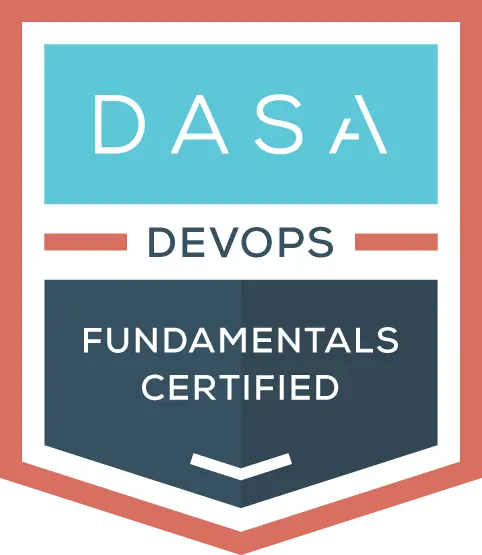DevOps has revolutionized the way organizations deliver value by fostering collaboration and automating processes. However, many organizations still face significant challenges in data management, where traditional, centralized approaches often lead to inefficiencies and bottlenecks. DevOps principles can be applied to data management, particularly through the implementation of Data Mesh, to mitigate these issues. By decentralizing data ownership and promoting cross-functional teams, organizations can overcome these challenges and ensure their data strategies are aligned with business goals.
The Evolution of DevOps and Its Relevance to Data
DevOps has fundamentally changed the landscape of software delivery by promoting collaboration between development and operations teams, automating processes, and fostering a culture of continuous improvement. However, the principles of DevOps have not been fully applied to the data world. Traditional data management practices often involve centralized teams managing data warehouses or data lakes, leading to bottlenecks, data quality issues, and a disconnect between data producers and consumers.
Initially, DevOps focused on breaking down silos between development and operations, introducing cross-functional teams that work collaboratively towards shared goals. Tools and practices like CI/CD, infrastructure as code, and automated testing became staples of DevOps These innovations streamlined the software development lifecycle, enabling faster and more reliable deployments.
Despite these advancements, data management practices have lagged. Centralized data teams often struggle with scalability, creating bottlenecks as they manage data ingestion, transformation, and delivery for multiple applications. This centralized approach leads to issues similar to those faced by pre-DevOps development teams: lack of ownership, slow feedback loops, and misalignment between data consumers and producers.
Introducing Data Mesh
Data Mesh addresses these challenges by decentralizing data ownership and treating data as a product. This approach draws directly from DevOps principles, advocating for cross-functional teams that include data experts and self-service data infrastructure.
The core principles of success Data Mesh implementation are:
- Domain-Oriented Decentralized Data Ownership and Architecture: Data Mesh advocates for data ownership to reside within the domains that produce the data. This decentralization mirrors the DevOps shift towards cross-functional teams, ensuring that those who understand the data best are responsible for its quality and availability.
- Data as a Product: Treating data as a product means adopting a product mindset towards data management. Each data product has a dedicated team which is responsible for its lifecycle, from creation to maintenance, ensuring it meets the needs of its consumers.
- Self-Service Data Infrastructure as a Platform: Providing a self-service data platform enables teams to manage their data products independently. This platform offers standardized tools and interfaces, reducing the mental burden on teams and fostering consistency across the organization.
- Federated Computational Governance: To ensure compliance and data quality, Data Mesh requires federated governance. This approach balances the need for standardized policies with the autonomy of individual teams, allowing for scalable and flexible data management.
Implementing Data Mesh: Strategies and Best Practices
Implementing a Data Mesh strategy requires a well-defined framework that promotes clear ownership, autonomy, and collaboration across teams. This includes clear ownership models, empowering product teams to manage their own data products, building a self-service data platform, ensuring federated governance, and fostering a data-driven culture.
Clear Ownership and Domain-Driven Design
Successful implementation of Data Mesh starts with clear ownership models. Domain-driven design (DDD) principles help define distinct contexts, establishing clear boundaries and responsibilities for data within each domain. This clarity ensures that data ownership is well-defined and aligned with the organizational structure.
Empowering Product Teams
Product teams should be empowered to manage their own data products. This empowerment includes integrating data roles within the teams, such as data engineers, data scientists, and data stewards. Providing the necessary resources and autonomy allows these teams to innovate and respond to data needs more efficiently.
Building a Self-Service Data Platform
A robust self-service data platform is critical for Data Mesh. This platform should provide:
- Compute and Storage Resources: Scalable infrastructure to handle varying data workloads.
- Data Cataloging: Tools for discovering and understanding available data products.
- Policy and Governance Tools: Automated mechanisms to enforce data quality, security, and compliance policies.
Ensuring Federated Governance
Federated governance involves setting up a governance framework that allows for decentralized decision-making, while maintaining comprehensive policies. This framework should include:
- API-Based Access: Standardized APIs for data access, ensuring consistency and security.
- Automation: Automated policy enforcement to reduce manual oversight and increase scalability.
- Contracts and SLAs: Clear contracts and service level agreements (SLAs) between data producers and consumers to set expectations and ensure accountability.
Fostering a Data-Driven Culture
For Data Mesh to succeed, organizations must foster a culture that values data and promotes continuous learning and improvement. This involves:
- Executive Sponsorship: Ensuring support from top leadership to drive the initiative forward.
- Continuous Education: Providing ongoing training and resources for teams to stay updated on best practices and new tools.
- Collaborative Environment: Encouraging collaboration across teams to share knowledge and insights.
Visualizing Data Mesh in Action
In a large enterprise, a Data Mesh implementation might begin with a centralized data enabling platform providing essential services like compute, cataloging, and governance. Product teams then leverage this platform to create and manage their own data products. For instance, a marketing team might develop a data product that aggregates customer behavior data, which is then used by an analytics team to generate insights for targeted campaigns.
This approach eliminates bottlenecks, enhances data quality, and ensures that data products are aligned with business needs. Teams can innovate faster, respond to changes more effectively, and drive better business outcomes.
Conclusion
By applying DevOps principles, Data Mesh represents a significant evolution in how organizations manage and utilize data.. By decentralizing data ownership, treating data as a product, enabling self-service infrastructure, and implementing federated governance, organizations can overcome traditional data management challenges and unlock new opportunities for innovation and growth. As the data landscape continues to evolve, adopting a Data Mesh approach will be crucial for organizations aiming to stay competitive and data-driven.


DASA DevOps Certification Program
DASA DevOps Certification Program equips you with the foundational skills to understand and implement key DevOps principles. You’ll learn how to foster collaboration across teams, streamline workflows, and accelerate delivery cycles—all while ensuring your organization is prepared for long-term digital transformation.
